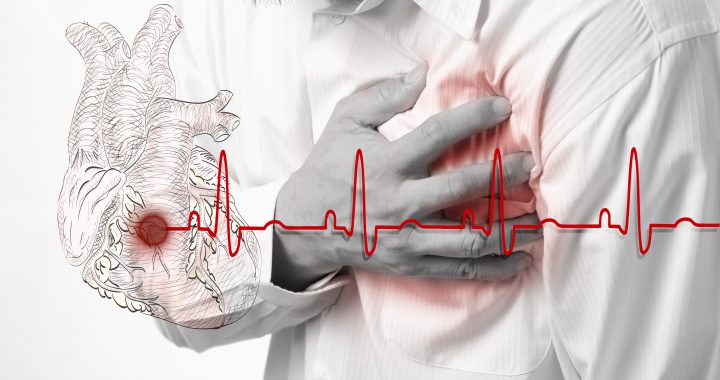Is Heart Disease Really Irreversible?
Category: Healthy Body

Hello everybody. It is Tuesdays with Teresa. I’m so happy you’re here!
Can’t believe it’s already February Valentine’s day month and we are going to talk today about the heart and is heart disease really irreversible.
So I want you to imagine the vascular system is your body’s plumbing the heart, your palm. The arteries are your veins in the blood is the water that flows through the entire system.
Now overtime fat, cholesterol, calcium, and other substances found in your blood, build up this plaque stick to the arterial walls, much like how Greece and other contaminants build up in your homes piping system.
Now as a plant grows your arrow arteries narrow and hardy restricting the amount of blood that flows through them, which leads to your heart muscle not getting enough oxygen to function properly.
Now this reduction of blood flow to your heart is known as coronary heart disease coronary artery disease or ischemic heart disease. Now this condition remains the leading cause of death in the US in both men and women in this. The most common type of heart disease.
So here are some of the symptoms, chest pain, shortness of breath, heart palpitations and heart attacks. So this is where some people get confused. Many are not aware that heart attacks are just manifestation of underlying problem that is chronic heart disease.
Now most heart attacks happen when a blood clot suddenly cuts off the hearts blood supply classic permanent heart damage.
Now experts believe that chronic heart disease begins with damage or injury to the inner layer of a coronary artery sometimes as early as childhood.
And this damage may be caused by various factors. Once the inner wall of an artery gets damaged fatty deposits tend to accumulate at the side of the injury.
Now, here are some risk factors smoking high LDL cholesterol, low HDL cholesterol, high blood pressure, a family history of diabetes, obesity, physical inactivity being postmenopausal for women and being older than 45 for men.
Well, is it irreversible. Unfortunately, much like diabetes. There is no known cure at this time.
Now there are some people who have undergone lifestyle changes that enabled them to abandon all medication and become symptom free
But there are no actual studies of arteries getting cleared a plaque buildup. But the good news is that there are medical treatments available that can alleviate symptoms and reduce the risk of further problems, including those that lower blood pressure or widen the arteries.
So good dietary and lifestyle habits can also help manage this condition. And if you start early even prevent it altogether. So here are four proven ways
To help lower your risk chronic heart disease and number one is eating a healthy, balanced diet.
A low fat, high fiber diet is recommended which should include plenty of fruits and vegetables and whole grains.
limiting the amount of salt is recommended because salt too much salt will increase your blood pressure. And there’s also, there’s two types of fats.
Saturated and unsaturated. So try to avoid foods containing saturated fats, because these will increase the levels of bad cholesterol in your blood.
Become more physically active combining a healthy diet with resistance or rolling exercise is the best way to maintain a healthy weight which reduces your chance of developing high blood pressure.Regular exercise will not only make your circulatory system more efficient, but will also lower your cholesterol level. Giving up smoking in reducing alcohol consumption.
According to the 2014 Surgeon General’s report one out of every four deaths from cardiovascular disease is caused by smoking.
Smoking increases the form ation of plaque and blood vessels chemicals from cigarette smoke cross the blood to thicken and form clots inside the veins and arteries. And alcohol. On the other hand, can interact with your medicines, if you’re being treated for heart disease. It may also contribute to high blood pressure. Increase your risk of stroke and cause abnormal heart rhythms and number four is keeping your blood pressure under control.
People with hypertension are more likely to develop chronic heart disease because high blood pressure, puts force against the artery walls and this extra pressure can damage the arteries, making them more vulnerable to the narrowing and plaque buildup.
So you can keep your blood pressure under control by eating a healthy diet exercising regularly and if required, take the appropriate medications to lower your blood pressure.
Now, if you have one or more of the risk factors associated with chronic heart disease. Talk to your doctor.
He or she even want to test you for this condition, especially if you have signs or symptoms of narrowed arteries. So here’s to keeping your arteries clogged free. Thanks for joining me and I hope you guys have a great day.



Facebook Comments